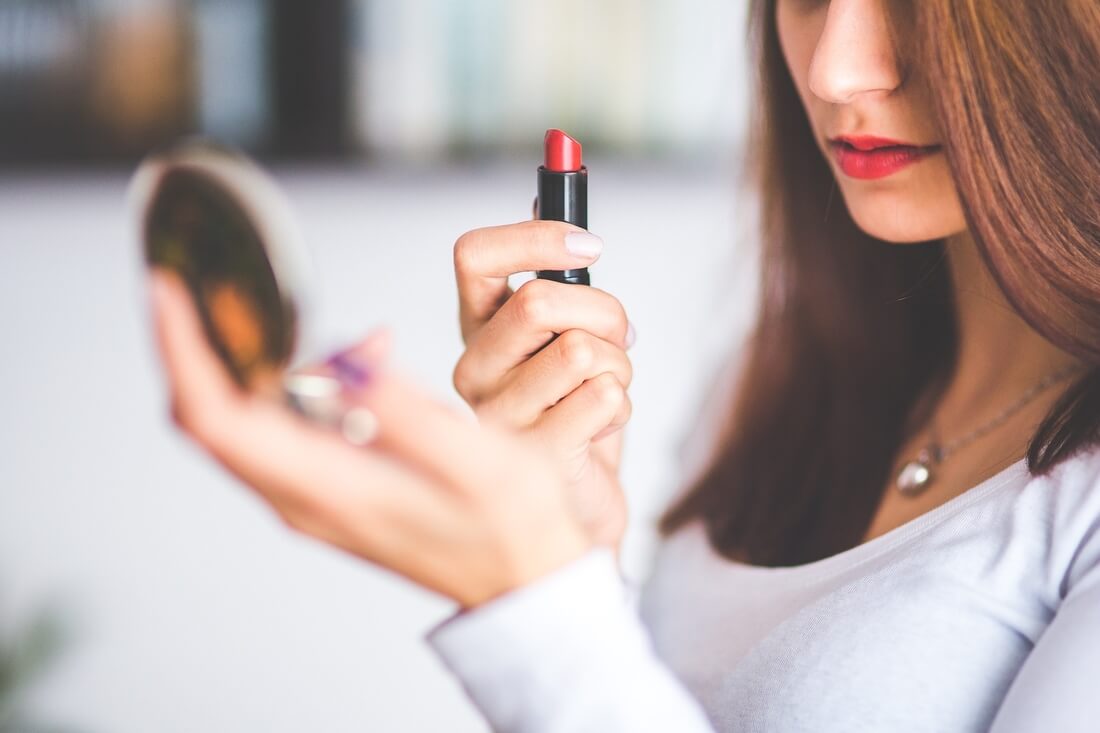If you have acne scars or acne prone skin, you can still use makeup. Just like people with dry skin, sensitive skin or any other type of skin, having acne skin just means you need to use the right kind of makeup in the right way. Here are 7 golden rules on using acne makeup and how to achieve the best results.
1. Clean acne skin before you start
Applying makeup for acne prone skin is all in the prep. The first step is to make sure your skin is clean before you start doing anything. Dermatologists advise the use of a gentle cleanser and rinse off with water. There is no need for a harsh scrub or mask to exfoliate your skin. Remember, acne is not about having dirty skin, it just means that your hair follicles have a tendency to be clogged with oil.
2. Use a mattifying primer
Are you wondering, what is a primer? A primer prepares your skin for makeup and is the first step in any makeup routine (after cleaning your face) and before putting on foundation. Using a primer evens out skin tone and helps your makeup last longer. When you have acne prone skin, you want a mattifying primer like Colorescience Protector Mattifying Face Primer SPF 20 which helps smoothen out your pores while preparing your face for makeup (not to mention protects you skin from UV rays).
Remember, when it comes to primers, it’s about what works for you. Don’t be swayed by ‘the best primer of the year’. It could be a dewy primer or illuminating primers that ends up accentuating your pimples. The ‘best primer’ for you, is what suits your skin. And if you have acne prone skin, we’re after a matte look as your skin is already naturally shiny.
3. How to use concealer for acne-prone skin
Concealers are an excellent tool for hiding your acne. You can conceal most pimples in three simple steps. Just dab the concealer on the problem area. Hide the shadow around the blemish with a clean cotton swab (not your fingers as we don’t want any bacteria getting onto the pimple). And lastly, brush lightly with a finishing powder. If you have a pimple that hasn’t erupted yet, you might get away with just applying a bit of translucent powder on the problem spot.
4. Best foundation for acne-prone skin
The best foundation for acne-prone skin is liquid foundation as it is less likely to clog up pores. The trick is not to use too much. Just spot it on around your face and smooth it out. If you slather the foundation all over your face, it can make your skin look cakey and make pimples stand out more.
5. Use acne makeup that’s oil-free
In fact, you should avoid all ingredients that don’t get absorbed by your skin like paraffin, phthalates, isopropyl myristate and petrolatum. These ‘oily’ ingredients sit on your skin and can clog pores. When you’re looking for makeup for acne prone skin, look out for words like ‘non-comedogenic’, hyaluronic acid and hypoallergenic. What is non-comedogenic? Comedones is the scientific term for blackheads or whiteheads. Hence, ‘non-comedogenic’ means non-acne causing; in other words, the products won’t clog your pores.
6. Make sure your brushes are clean
Skin specialists and dermatologists recommend that you clean your makeup brushes at least once a week. All you have to do is wash them with a gentle cleanser and rinse with water. Cleaning your brushes prevents bacteria build-up. Dirty brushes, when used on acne prone skin, can lead to even more breakouts.
7. Don’t leave makeup on overnight
You know how to apply the best makeup for acne prone skin. Now don’t forget to take it off. Like Cinderella at the ball, you have a deadline too! Even if you are using the most gentle products suitable for sensitive and acne prone skin, you need to take it off before bedtime. Keeping your skin clean, free of makeup, and moisturised will prevent breakouts.
The most important thing you can do to care for you acne prone skin is to maintain a clean and healthy skincare regime.
Many celebrities such as Kendall Jenner, Mandy Moore and Justin Bieber have oily and acne-prone skin, and have no qualms about broadcasting their breakouts on Instagram. But if acne skin is getting you down, don’t hesitate to see a skin specialist or dermatologist.
You can also talk to one of our Clinica Lase therapists. We have a range of acne treatments to help you get rid of acne in a safe and holistic way. Ask us about the latest technology to treat acne such as using laser genesis or chemical peels.


